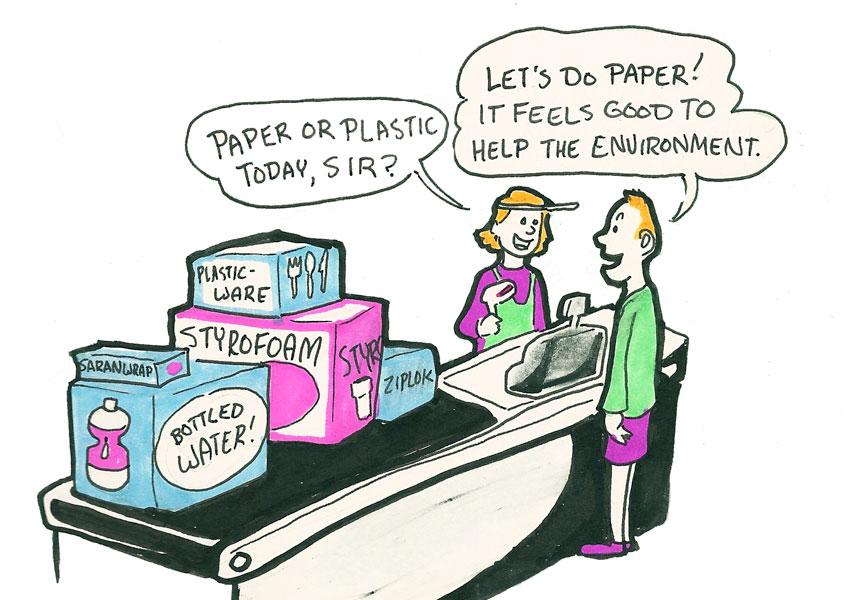Plastic bag ban fails to address environmental problems
Banning plastic bags may be a ‘feel-good’ solution, but it’s not going to help the environment in any meaningful way.
On Aug. 1, a ban on stores providing plastic bags to customers in both Evanston and Chicago took effect. The ban only applies to large retail stores such as Wal-Mart, Target and Jewel.
The law was proposed and passed due to the environmental problems associated with plastic bags. As plastic is not biodegradable, plastic trash often gets into lakes and oceans, including Lake Michigan. In addition, plastic bag litter is a significant problem along the shores of bodies of water such as Lake Michigan.
Supporters of the bans argue for the law from several fronts. In terms of the environment, they argue that plastic bags are unrecyclable and that many other types of bags, while often not environmentally ideal, are better and can serve the same purpose.
Economically, they argue that stores save money by not providing the bags. In addition, they argue that plastic bags being banned raises awareness of the environmental harms from items such as bags in general.
However, the bans have several problems. First, they only apply to large stores, which limits their effectiveness and makes
no sense; plastic bags are the same, no matter the store.
Second, as Eric Zorn of the Chicago Tribune noted on June 25, retailers are replacing plastic bags with paper bags and somewhat more reusable plastic bags. Not only do studies show consumers do not frequently reuse these bags, but the replacement plastic bags contain more non-biodegradable plastic than the old plastic bags.
In addition, as the City of Evanston notes in a pros and cons list, paper bags use more energy and produce more greenhouse gas emissions than plastic bags, so the ban will in fact harm the environment. Combined
with the increased plastic, the ban ironically has a negative impact on the environment.
Finally, the small amount
of money that stores will save by not providing plastic bags pales in comparison to amount lost by switching to more expensive paper and plastic bags. In order not to lose money, they have to charge more for paper bags, as Office Depot is doing in Evanston.
Obviously, plastic bags are still a problem. But only focusing on them, or any kind of bag, does nothing. A better solution is the one proposed by Bring Your Bag Chicago, in which cities would impose a mandatory fee for any store-provided bag, paper or plastic. This would create environmental awareness and provide an incentive for consumers to reuse bags.
Your donation will support the student journalists of the Evanstonian. We are planning a big trip to the Journalism Educators Association conference in Philadelphia in November 2023, and any support will go towards making that trip a reality. Contributions will appear as a charge from SNOSite. Donations are NOT tax-deductible.












